'She said she would protect me' - teenage mothers and their mums
We meet four teenage mothers from four different countries who are exploring their relationships with the women who raised them
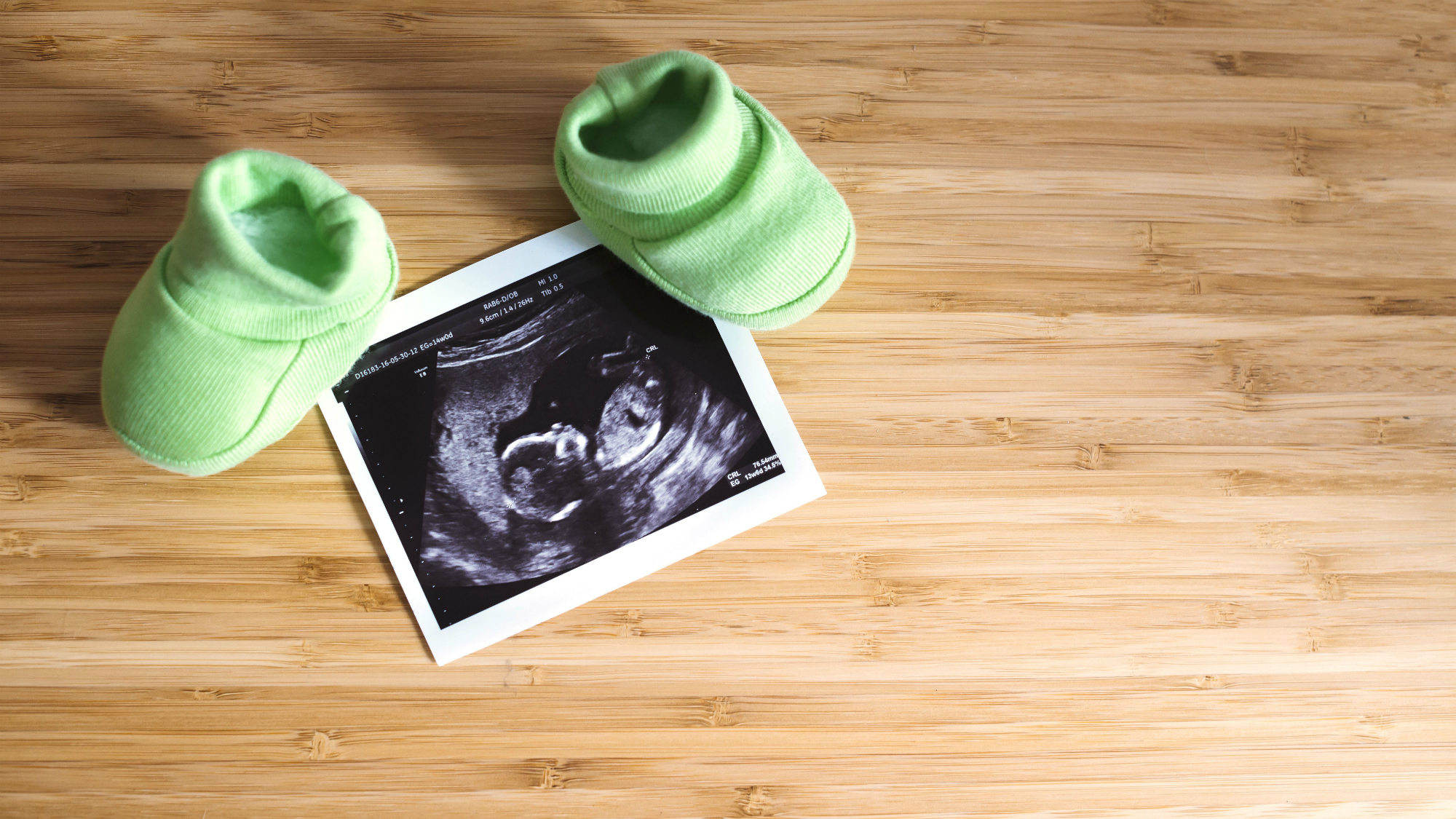
Celebrity news, beauty, fashion advice, and fascinating features, delivered straight to your inbox!
You are now subscribed
Your newsletter sign-up was successful
We meet four teenage mothers from four different countries who are exploring their relationships with the women who raised them
CAMBODIA
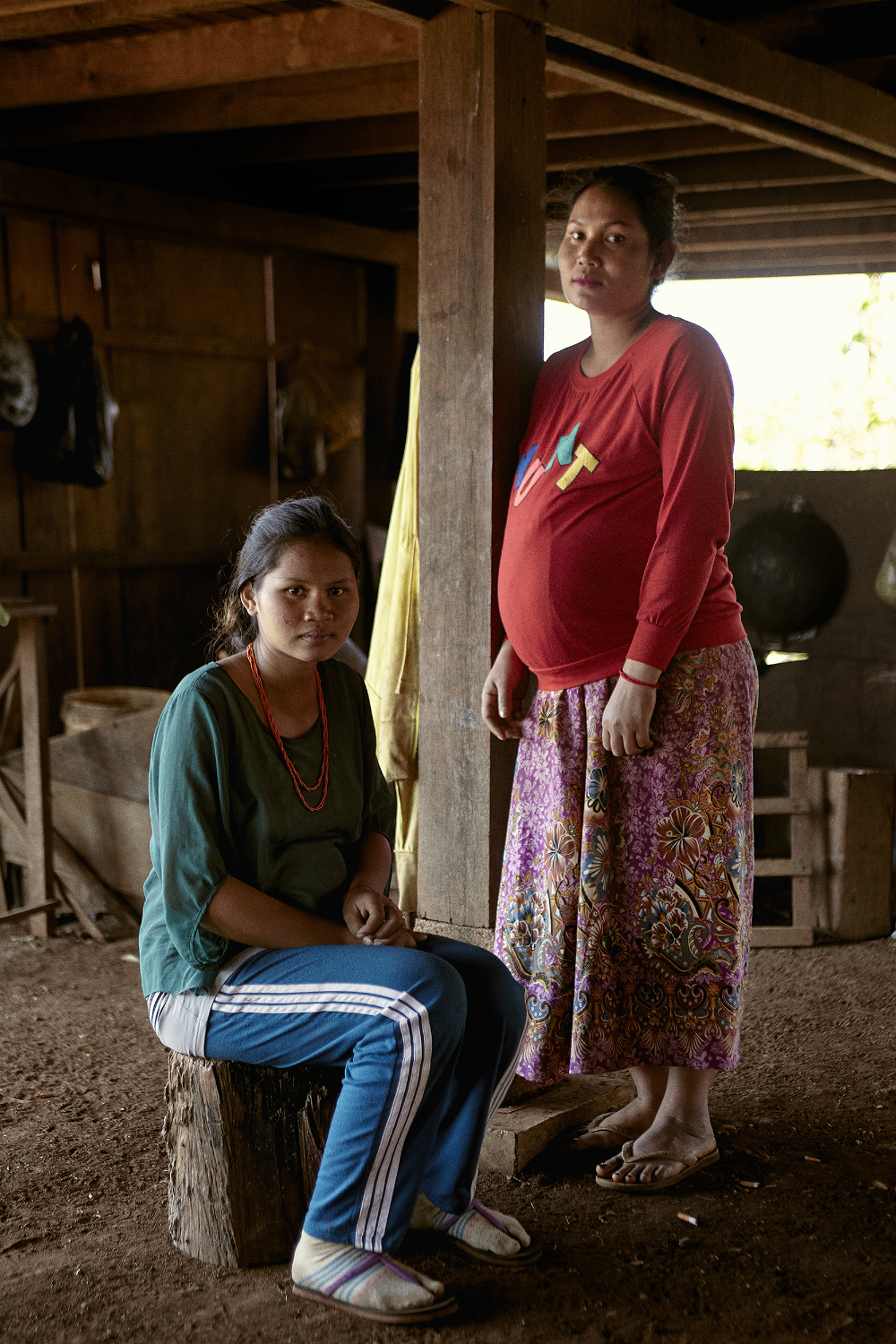
Dina, 16, is seven months pregnant with her first child. Her mother, Chhang, is 32, and nine months pregnant with her fifth child.
'You don’t expect to be pregnant at the same time as your mum, but I think it’s exciting. I’m going to get a new little brother or sister, and a son or daughter of my own at the same time. I like to imagine them playing together when they grow up.
It’s much more normal for a girl my age to give birth here than for a woman as old as my mum. Most girls I know are married by the time that they turn 14 or 15, and after the wedding it’s traditional to try and have a baby as soon as possible. That way the child can grow up with you, and you’ll always have enough energy to care for them. But when my periods stopped, I panicked. I couldn’t stop thinking about how hard things were going to be. My husband is 28, and owns a small patch of land in the jungle where he grows potatoes and bananas – and most days, that’s all we have to eat. We can’t even afford rice. Being pregnant meant that I wouldn’t be able to find a good job and our situation would never improve. We would always be hungry.
At that moment, all I wanted was to speak to my mum. She held me, really tight, and said that everything was going to be OK. She reassured me that she had been 16 too when she was pregnant with me. She said that she had also only had bananas and potatoes to eat when I was born, but that together we had survived – so we would survive together again. She told me that it was good that we were pregnant at the same time, because it meant there would always be somebody who understood what I was going through – if times were hard, then I wouldn’t be alone.
Not everything is the same though. My mum won’t let me give birth at home, even though that’s how she has always delivered her babies. She says that it’s too dangerous for me, and that I should go to the hospital in town. When I said that if it was dangerous for me, then maybe it would be dangerous for her too, she laughed. Then she told me she was my mum, and needed to protect me – and that it doesn’t work the other way round. Later I found out we don’t have enough money for both of us to give birth in hospital.'
NIGER
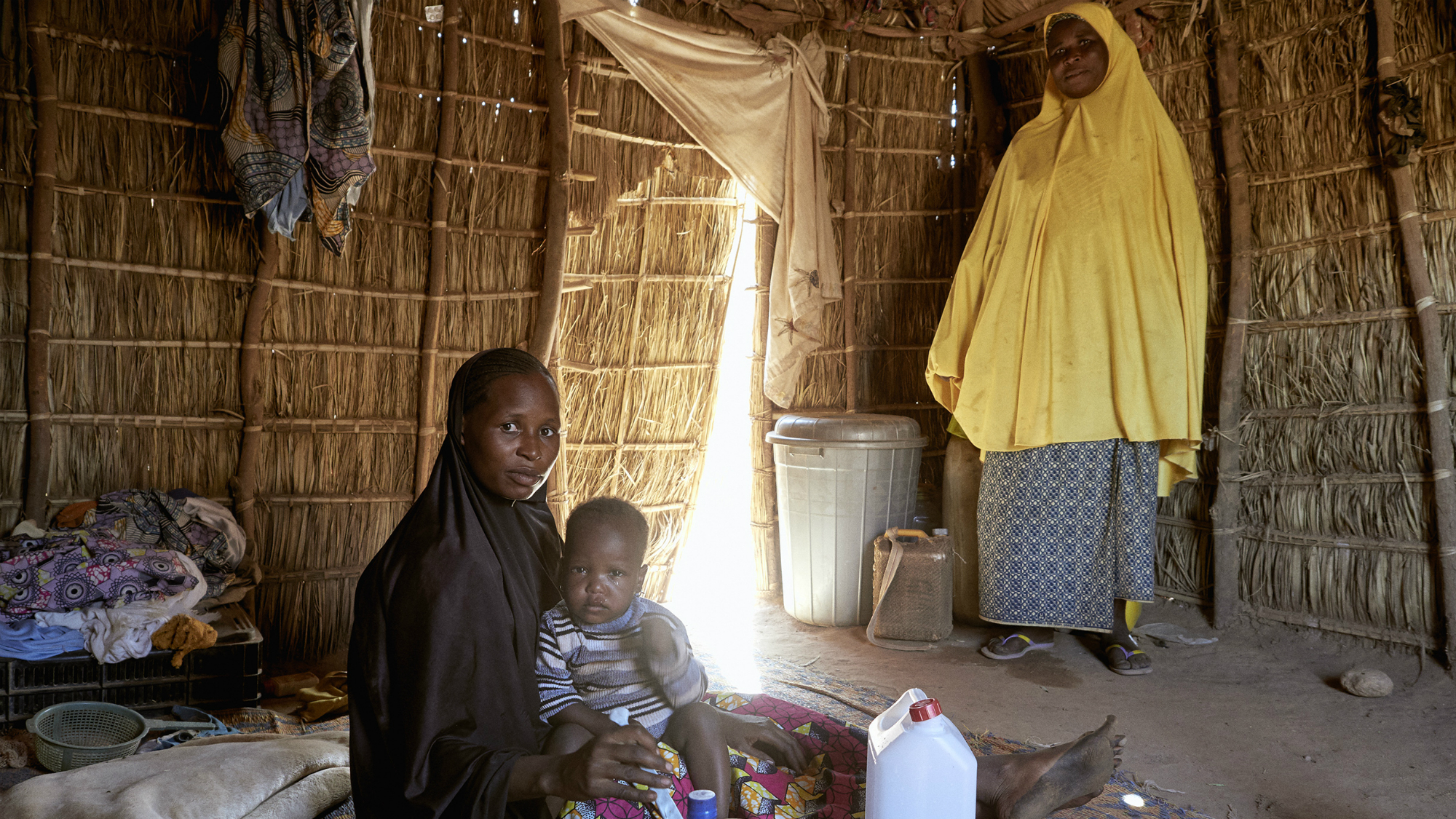
Ghaicha Ousmane, 18 years old, is mother to Zeinab, aged two. Her mother, Garfa, is 50.
Celebrity news, beauty, fashion advice, and fascinating features, delivered straight to your inbox!
'When my husband proposed to me, my mum and I both cried. Only I was crying with sadness, and she was crying because she was so relieved. "Now there is someone who can look after you," she said – before telling me that I needed to be good and obey my husband to make him happy. She didn’t understand why I was so unhappy. I told her that I wanted to go continue going to school – but she had never had an education, so she didn’t know why that was important to me. For her, the only way to lead a good life is to marry a good man. And she very much wanted me to have a good life.
In my case, the man was 24 years old, and I was 12. He’d seen me while I was collecting water, and followed me home so that he could ask my parents for permission to marry me. Eventually, I persuaded them to accept the proposal – but to delay the wedding until I was 15. That way I could go to school for three more years. Neither my mother nor my father understood, but they accepted my request.
Within two months of getting married, I was already pregnant. We were living alone in little hut, and I missed my mum so much that I would walk across the village twice a day to see her. It’s not that I had anything to say to her in particular – I just knew I wanted to be with her. When I told her that I was expecting a child, she was really happy. For her, this was a great sign of success, and she told me that she was so proud. When I said that I was scared, she brushed it off. She said that if I didn’t want to have lots of babies, then I could just have four or five – rather than ten or 12, like most women here.
I have accepted my life now. Being a mother is hard, and sometimes I do feel sad and lonely, but I’m used to it. But when my daughter grows up, I will do things differently. To have a good life, I know that you need a good school – not a good husband.'
LAOS
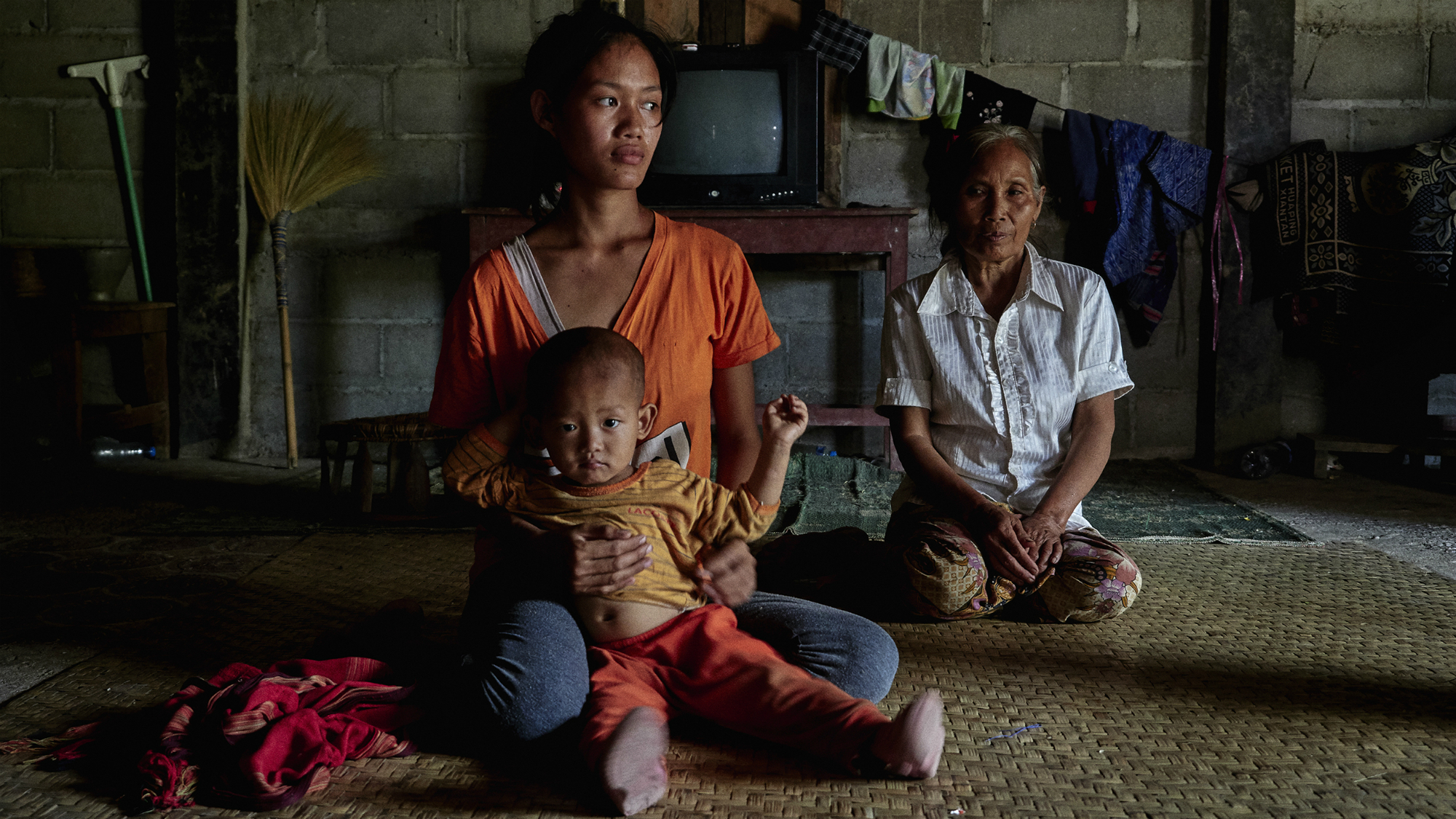
Souvanlit Tuktah, 17, is mother to Tonkun, aged 15 months. Her mother, Kanyah, is 66 years old.
'I was adopted two weeks after I was born. My father had been having an affair with a younger girl when she fell pregnant. After she gave birth, she said she couldn’t cope with raising a child because she was too young, so my father asked his wife to take care of the baby. She agreed – but divorced my father on the grounds of his infidelity. It’s just been me and my mum together ever since.
Two years ago, I got married to a man who lived in our neighbourhood. My mum wasn’t happy when I told her that I was engaged – she said that she wanted me to finish going to school, and to get a good job in the city. But I was worried that if I didn’t accept the man’s proposal, then he would spread rumours about me. Your reputation is everything here. So we had a small wedding, and within a few months, I was pregnant.
I had just given birth when my husband hit me for the first time. We were still living with my mother, but when I went to work in the fields all day, he would lie around the house taking drugs and getting drunk. I knew it was upsetting my mum, but she couldn’t make a fuss because it’s against our culture for the wife’s mother to complain about something. So I asked him to stop, and he beat me so hard that I fell against the wall and everything went black. After that, he was violent nearly every day. I was covered in bruises, and all the furniture was smashed up. He forbade me from eating for days at a time, until my milk dried up and I couldn’t feed our son. Through it all, I just begged my husband not to hurt my mum or the baby too. I thought, ‘I can cope with this, as long as they are safe’.
I was trying to look after my mum because I thought she must be weak since she was so old. But after six months of watching my husband hurt me, she said, "enough". She called the police, and demanded that they remove him from our house. Then she marched down the street to my husband’s parents’ house, and told them she never wanted to see him near me again. She told me to stop crying, and to be strong. She said, "we will raise your baby together, as a team. We don’t need any men."
I didn’t believe her at first – I didn’t think it was possible – but now I never want to marry again. My relationship with my mother is enough.'
PHILIPPINES
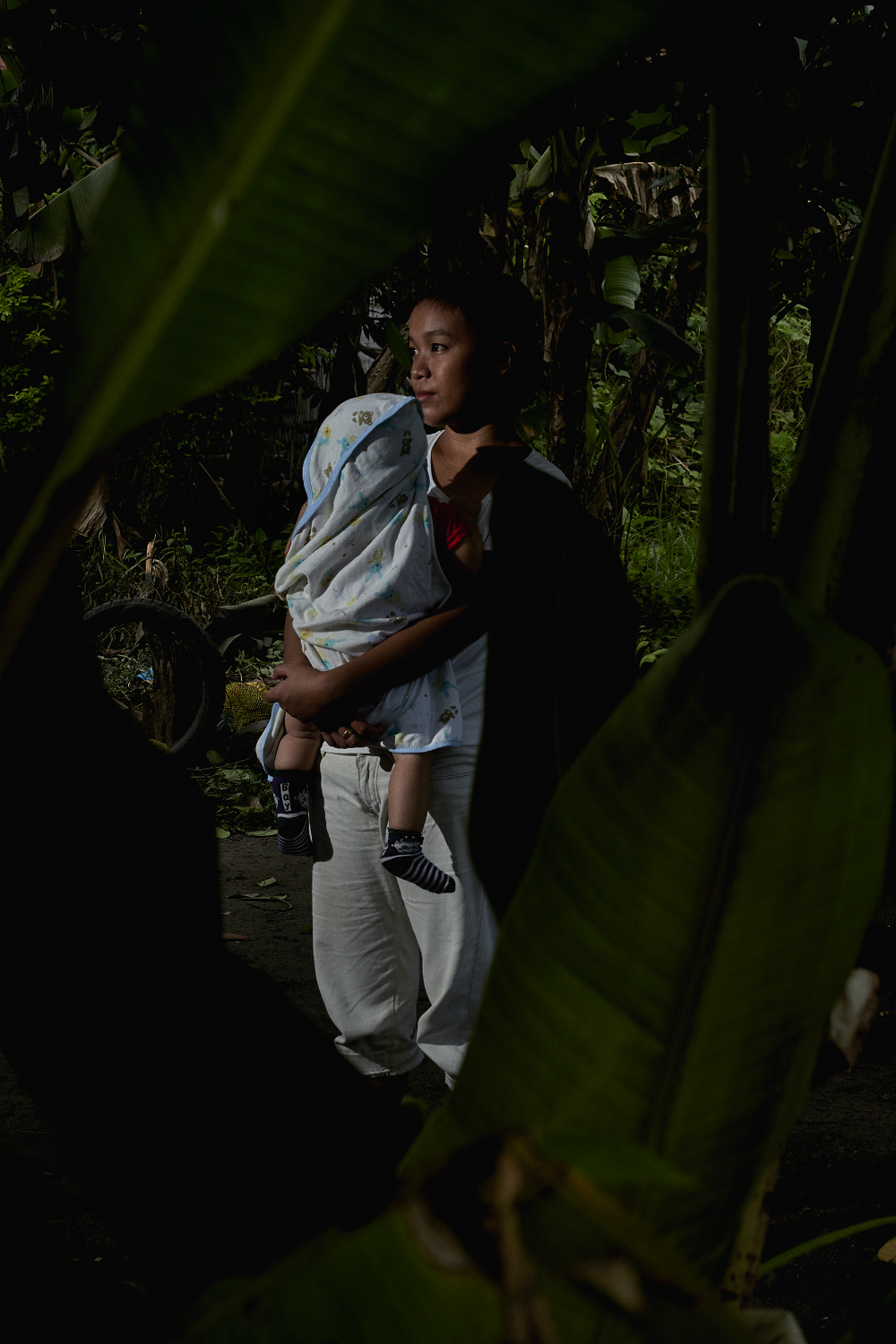
Ailea Kathlyn Gulok Dalimbang, 17, is mother to eight month old Kathlyn Mae. Her mum is in her 50s.
'When I gave birth, I was in so much pain that I forgot where I was. I cried and screamed so much that the nurses begged me to be quiet. All I wanted was my mum. It wasn’t until I was holding my daughter that I realised she wasn’t coming.
I haven’t seen my mum since I was six years old, but it’s not her fault: She works in Bahrain as a housekeeper so that she can send money back to support my brothers and me, and pay for us to go to school. She sends us everything that she earns every month, and when we FaceTime she always looks tired. I don’t like to think of her like that though, so when I picture her, I try to remember what she was like when she lived with us. My favourite memory is when she would pick me up and hug me when I got home from class. I miss her holding me, and telling me that she loved me.
I didn’t mean to get pregnant. I wanted to go to university, but last year I was at a party, when my boyfriend gave me something really strong to drink. After that, everything became a bit cloudy – like my arms and legs belonged to someone else. He asked me to have sex with him and I guess I must have agreed. When I realised I was expecting a baby, I was too scared to call my mum. In the end, my brother told her for me. He says that she cried down the phone for hours.
Nowadays when I talk to my mum, she’s so much more cold and distant than she used to be. I know she loves her granddaughter, but she sacrificed everything so that I could have a better life – one with a good education and a real career and enough food to never feel hungry. She’s never said it out loud, but I can see in her eyes that I’ve let her down.'
This reporting was funded by the European Journalism Centre, as part of Corinne and Francesco’s project, Crying Hunger [www.instagram.com/cryinghunger].